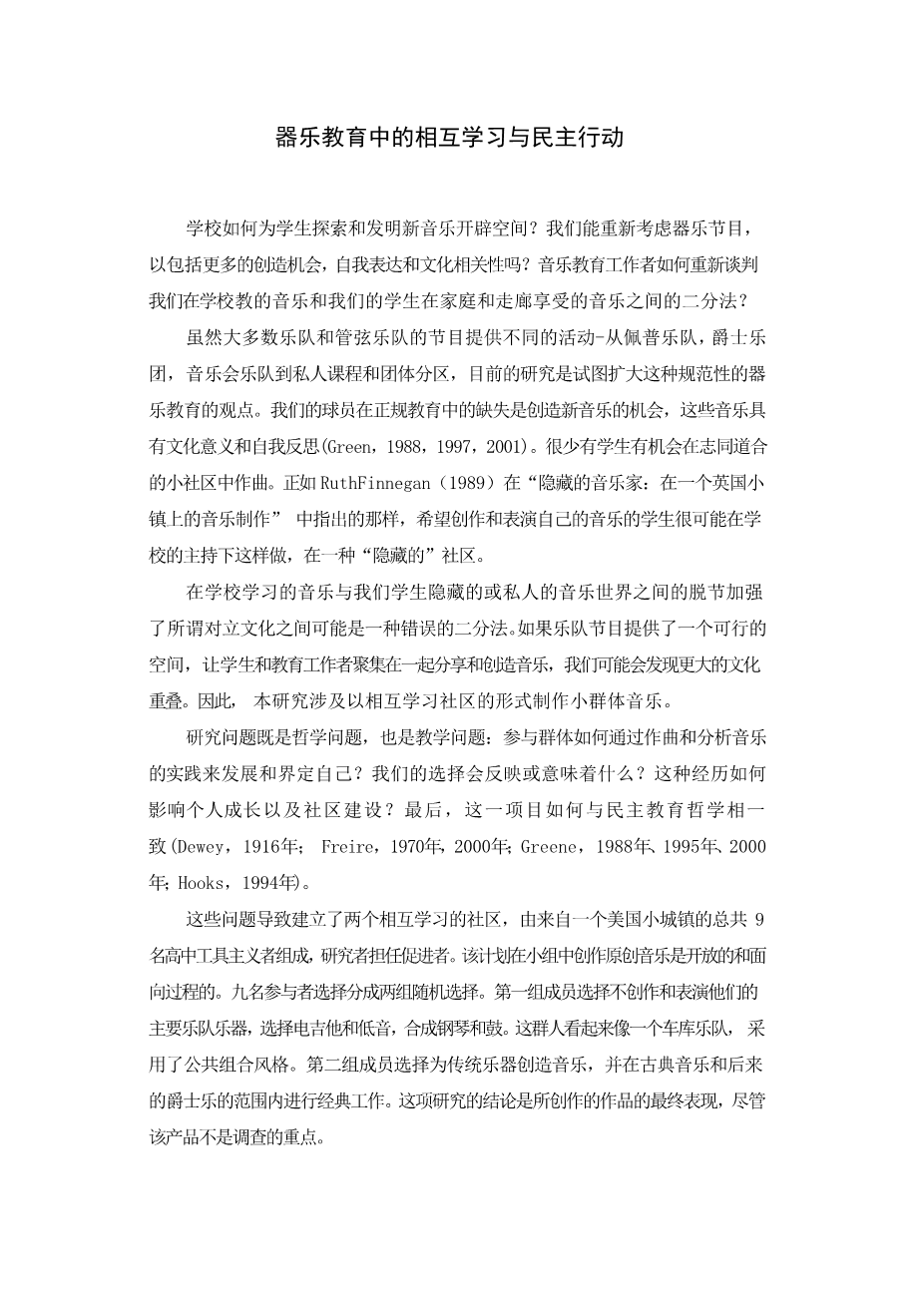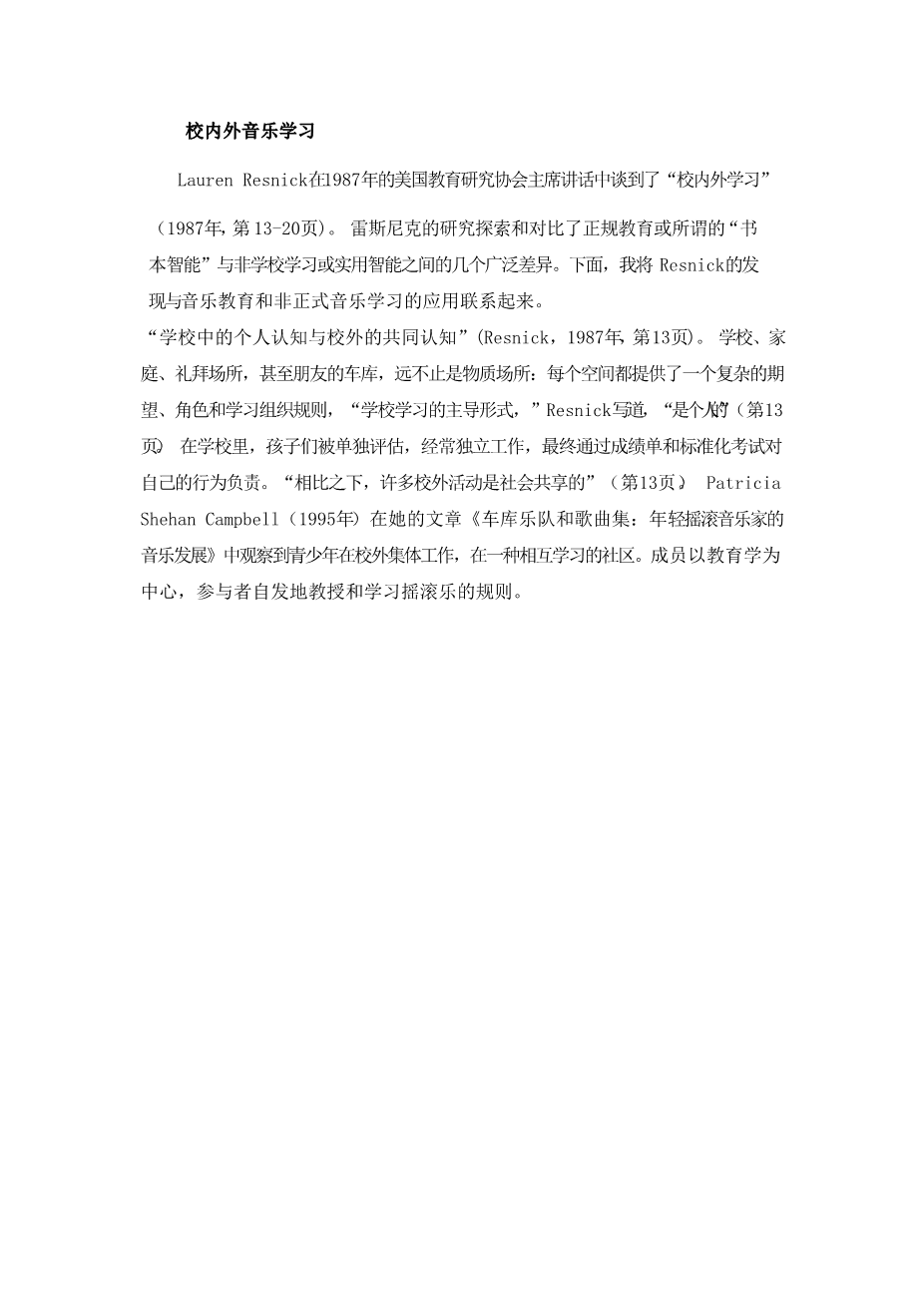Mutual Learning and Democratic Action in Instrumental Music Education
How might schools open spaces for students to explore and invent new music? Can we rethink instrumental music programs to include more opportunities for creativity, self-expression, and cultural relevance? How might music educators renegotiate the dichotomy between the music we teach in school and the music our students enjoy in homes and hallways?
While most band and orchestra programs provide diverse activities-from pep bands, jazz ensembles, and concert bands to private lessons and group sectionals-the present study is an attempt to expand this normative view of instrumental music education. Missing in the formal education of our players are opportunities to create new music that is culturally meaningful and self-reflective (Green, 1988, 1997, 2001). Rarely are students given the opportunity to compose in small, like-minded communities. As Ruth Finnegan (1989) notes in The Hidden Musicians: Music Making in an English Town, students who wish to create and perform their own music are likely to do so outside the auspices of school-in a kind of 'hidden' community.
The disconnection between the music studied at school and the hidden or private musical world of our students reinforces what is perhaps a false dichotomy between so-called opposing cultures. If band programs provided a workable space where students and educators came together to share and create music, we might find greater cultural overlap. This study, therefore, concerned small-group music making in the form of mutual learning communities.
Research questions were both philosophical and pedagogical: How would the participating groups evolve and define themselves through the practice of composing and analyzing music? What would our choices reflect or signify? How might this experience affect individual growth as well as community-making? And finally, how is such a project congruent with philosophies of democratic education (Dewey, 1916; Freire, 1970, 2000; Greene, 1988, 1995, 2000; Hooks, 1994).
These questions led to the creation of two mutual learning communities consisting of a total of nine high school instrumentalists from a small American town, with the researcher as facilitator. The plan-the creation of original music in small groups-was open-ended and process-oriented. The nine participants elected to split into two randomly chosen ensembles. Group 1 members chose not to compose and perform on their primary band instruments, opting for electric guitar and bass, synthesized piano, and drums. This group came to resemble a garage band, adopting a communal compositional style. Group 2 members chose to create music for traditional instruments and worked canonically within the confines of classical and later jazz music. The study concluded with a final performance of the works created, although this product was not the focus of the investigation.
Musical Learning in School and Out
In her 1987 presidential address to the American Educational Research Association, Lauren Resnick looked at 'learning in school and out' (1987, pp. 13-20). Resnicks research explored and contrasted several broad differences between formal education or socalled 'book smarts' and nonschool learning or practical intelligence. Outlined below, I have linked Resnicks findings to applications in music education and informal musical learning. (Italics are added for emphasis.)
- 'Individual cognition in school versus shared cognition outside' (Resnick, 1987, p. 13). Schools, homes, places of worship, and even a friends garage are much more than physical localities: each space provides a complex of expectations, roles, and organizational rules for learning, and 'the dominant form of school learning,' writes Resnick, 'is individual' (p. 13). In school, children are assessed individually, often work independently, and are ultimately responsible-through report cards and standardized tests-for their own actions. 'In contrast, much activity outside school is socially shared' (p. 13). In her article 'Of Garage Bands and Song-Getting: The Musical Development of Young Rock Musicians,' Patricia Shehan Campbell (1995) observed teenagers working collectively outside of school, in a kind of mutual learning community. Membership centered on pedagogy, with participants teaching and learning the rules of rock music spontaneously among themselves.
- 'Symbol manipulation in school versus contextualized reasoning outside school' (Resnick, 1987, p. 14). Formal learning places a high priority on decontexualized knowledge, or pure reasoning. 'Outside school,' writes Resnick, 'actions are intimately connected with objects and events' (p. 14). Abstracted knowledge in music learning comes in many forms, from a concentration on technical prowess to the rules that govern augmented sixth chords. Unless placed in context, symbol manipulation can be tedious and repetitive. Lenore Pogonowski (2002) finds the overemphasis on notational instruction to be a problem, writing that such skills are often taught 'separately and mechanistically from the personal [versus social] context of music making and consequently are not remembered from year to year as students ascend the public school ladder' (p. 28). Like Pogonowski, Peter Cope and Hugh Smith (1997) call for widening and enriching music pedagogy through context-specific reforms (pp. 283-289). They advocate expanding the classical instrumental repertoire, shifting from the 'logical gradation of exercises' to 'learning to play tunes,' expanding the range of traditional instruments, learning to play by ear, 'unexplicating music theory,' and nurturing 'the competent amateur player' (pp. 285-286).
-
'Generalized learning in school versus situation-specific forms of competencies outside' (Resnick, 1987, p. 15). Schools tend to favor generalizable principles to situation-specific co
剩余内容已隐藏,支付完成后下载完整资料


英语译文共 2 页,剩余内容已隐藏,支付完成后下载完整资料
资料编号:[420833],资料为PDF文档或Word文档,PDF文档可免费转换为Word


